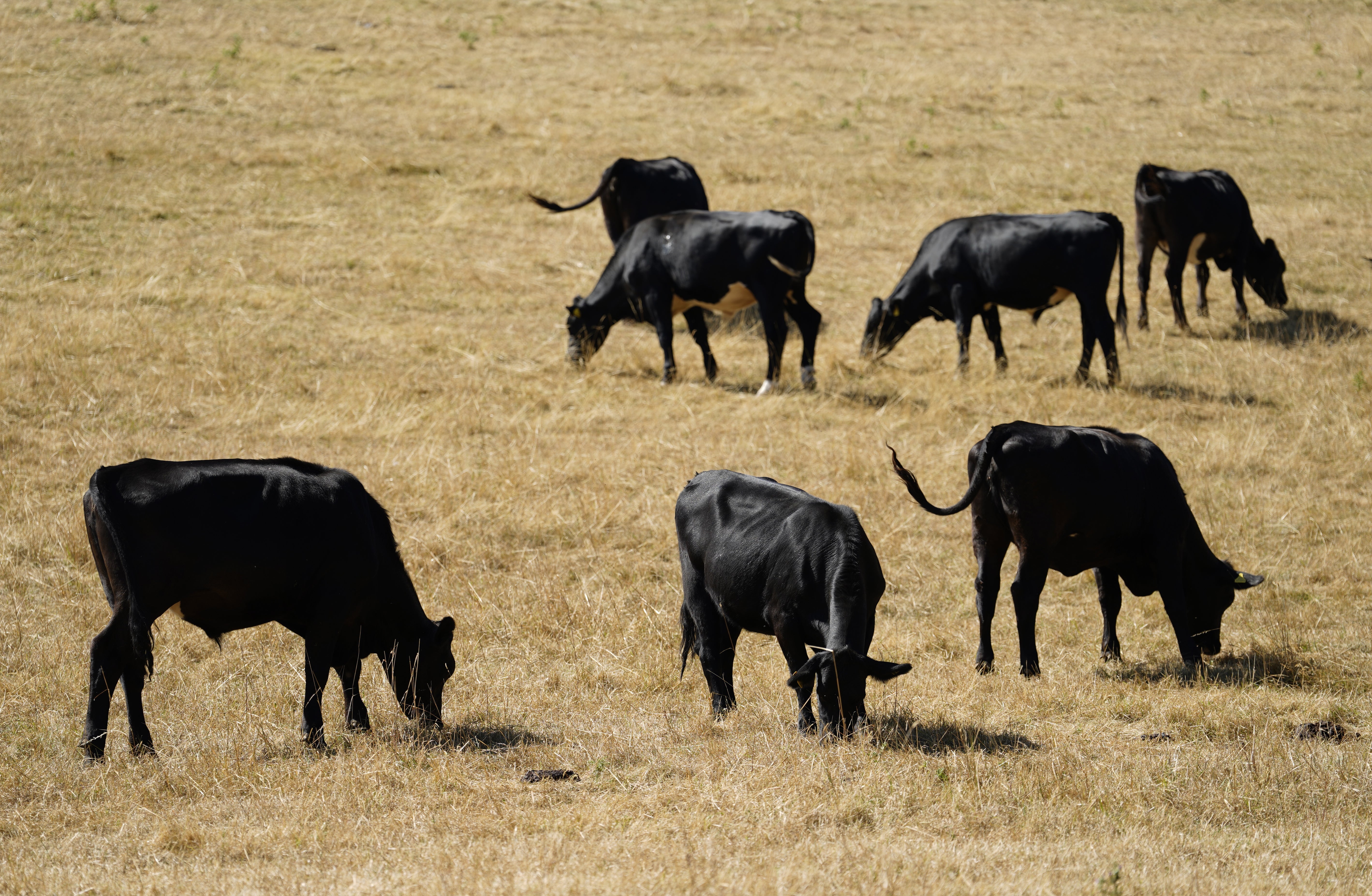Defra rules relaxed in heatwave so farmers can feed livestock
The temporary changes mean farmers can relax the guidelines in their agri-environment scheme agreements and make it easier to feed animals.

Your support helps us to tell the story
From reproductive rights to climate change to Big Tech, The Independent is on the ground when the story is developing. Whether it's investigating the financials of Elon Musk's pro-Trump PAC or producing our latest documentary, 'The A Word', which shines a light on the American women fighting for reproductive rights, we know how important it is to parse out the facts from the messaging.
At such a critical moment in US history, we need reporters on the ground. Your donation allows us to keep sending journalists to speak to both sides of the story.
The Independent is trusted by Americans across the entire political spectrum. And unlike many other quality news outlets, we choose not to lock Americans out of our reporting and analysis with paywalls. We believe quality journalism should be available to everyone, paid for by those who can afford it.
Your support makes all the difference.The driest weather for decades has forced the relaxation of strict environmental rules allowing farmers to make it easier to feed and graze their animals, the Government has announced.
The temporary changes mean farmers will have the option to relax the guidelines in their agri-environment scheme agreements and make it easier to feed livestock.
The Department for Environment, Food and Rural Affairs (Defra) said the changes come in immediately and will last until the end of the year.
It will mean farmers who are part of the Countryside Stewardship or Environmental Stewardship schemes will be able to cut or graze additional areas of land to help ease shortages of bedding, fodder, grazing or forage crops.
Buffer strips and field corner will also be able to be cut early following the changes.
Forage crops are also being affected as less silage is made and farmers are feeding stocks to their livestock now instead of saving them for the winter months.
The changes are being made as the Environment Agency declared drought status for large parts of England.
Environment Secretary George Eustice said: “We are better prepared than ever before for these unprecedented dry conditions, but many farmers are concerned about water supplies and the impact on their crops and livestock.
“We are therefore introducing temporary easements on agri-environment schemes to give them the flexibility to respond.”
Defra said it was continuing to assess the impact of the dry weather and was considering taking further measures in the coming weeks.
NFU vice president David Exwood said: “The situation on the ground continues to be hugely challenging across all farming sectors.
“With nine areas of the country now officially in drought, many farmers and growers are facing serious impacts ranging from running out of irrigation water to using winter feed now to feed livestock – in short, increased costs across farming.
“The measures announced by Government provide some welcome options for Countryside Stewardship and Environmental Stewardship agreement holders.
“This important derogation, which the NFU has been calling for, will provide some relief to livestock farming businesses which are already using vital winter feed supplies at a time when on-farm costs are continuing to increase significantly.”
Mr Exwood also welcomed the announcement from the Rural Payments Agency that further rounds of funding for the water management grant will open in the autumn.
“But we would like to see Defra’s regulators working together more efficiently to ensure the permissions and licenses are delivered alongside the funding approval,” he said.
“The weather over the past six months has highlighted the urgent need for government to take our national food production and resilience seriously by ensuring all departments across Whitehall give due regard to the impact of environmental policies on the country’s ability to produce food.
“While some areas are now experiencing torrential downpours, many farming sectors continue to be affected by the dry weather, and we will continue to monitor the impacts on UK food production immediately and in the longer term.”